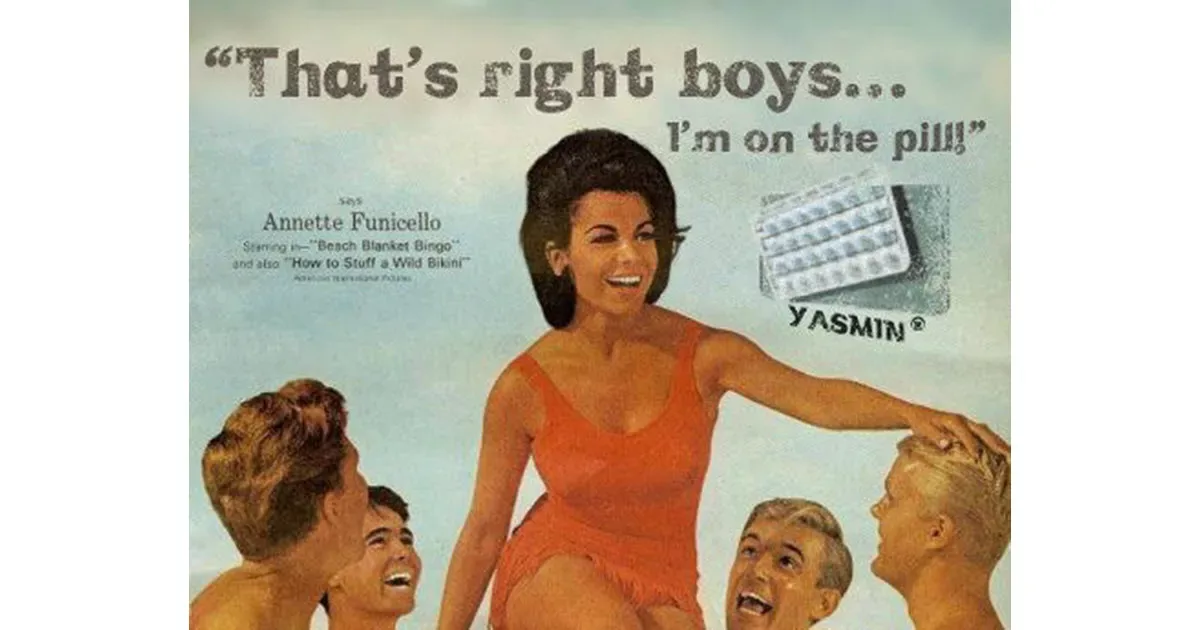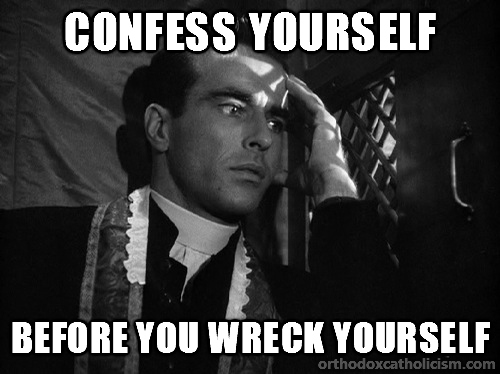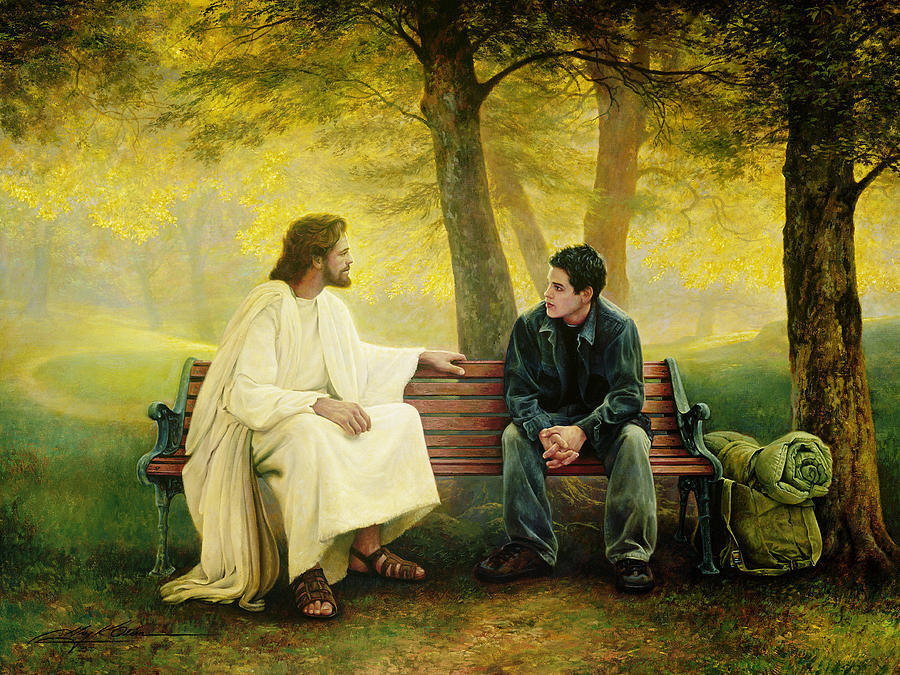What follows is an anthology of articles published in the parish bulletin of the Antigo Area Catholic Churches beginning in January of 2024. - Fr. Joel
As we kick off 2024, I know we all have a sense of optimism that things will just keep getting better and better. Yes, we’ve had our share of minor setbacks like global disease panics, massive increases in food prices, war in the Middle East, war in central Europe, massive immigration, data breaches, stolen identities, corporate layoffs and banking shakeups. But from now on, things will be looking up. A combination of scientific advances, international cooperation, and constantly improving public education will inevitably lead to a better future for our children and grandchildren. I know we all feel privileged to be living in the world’s richest democracy. With this being an election year, America will once again be showcasing its global moral leadership by demonstrating in how our democratic system leads to peace, harmony, cooperation and happiness.
The End of the World as We Knew It
Am I being a little too optimistic about the future of our country? The one thing everyone seems to agree on is that we are not in a good place as a nation. We certainly don’t agree on whose fault it is, or how to fix it, but I can’t think of anyone who is excited to go into another election year. It’s not just national politics, or international news that is discouraging. People are moving out of the cities to the countryside to get away from the insanity. But we are not that far behind. Our local elementary schools now have a “calming room,” basically a padded room where you can put angry kids who are having meltdowns, unable to manage their own emotions. Kids’ behavior make teachers fear for their safety.
The more you look around, the more you notice signs of decline. Churches are empty. The countryside is dotted with shuttered bars, each one with a baseball diamond slowly disappearing into the weeds. Country schools have closed up. We have become isolated, depressed, and anxious. Kids wander the streets clutching cell-phones for safety. No one stays outdoors for too long. Though we have plenty to eat, too much stuff and far too many material possessions, we seem to be living in a kind of post-apocalyptic world. We have lost something essential, and everyone feels the loss. We can’t seem to name what hit us.
I talk to many older parishioners about “the way things used to be.” There were certainly problems in our past, too. Farmers struggled, there was little care for the environment, racism was socially acceptable, and there were far too many tragic deaths, war, and diseases. But despite the challenges, older Americans paint a picture of a country that was much more ALIVE. Churches were packed. Families were big and boisterous. Bar leagues were lively places all summer. Kids had plenty of friends and neighbors to play with. Neighborhoods were real communities, where people knew each other and helped each other. People felt safer and more at home. Then a disaster struck the heart of our society. It blew families apart, destroyed communities, and left widows and orphans living in fear. It was not an A-bomb or an H-bomb; it was the F-bomb.

The F-Bomb
I believe that we can trace the decline in Western society, the collapse of churches, the breakdown in the family, and the general moral collapse to one single invention. No, it was not the atom bomb, the transistor, or the internet. It was something that struck at the very heart of society. And the reason it was not recognized as a threat was because it was universally hailed as an incredible invention, a triumph of modern science, whose coming was seen as something of a savior of society. The most destructive of all human choices happen when we have convinced ourselves that something bad is really, really good.
In 1960, the US Food and Drug Administration approved the first hormonal contraceptive. Now, despite the veneer of “family values,” the 50’s and earlier decades did not, in fact, exhibit healthy attitudes towards sexuality. Social norms generally followed the two golden rules of healthy sexuality (more on this later), but there was plenty of innuendo, pinup girls, and unhealthy behavior going on. Far too many girls were sent on nine-month “trips” for “health reasons,” the consequences of changing moral norms that had already created a huge demand to remove pregnancy from intercourse. In a culture that was rapidly commoditizing every sort of product, possession, and pleasure, possible pregnancy was seen as an annoying barrier to the commercialization of this deepest of human desires.
Nor was contraception truly a modern ideas. The Romans had made condoms out of pig intestines when they frequented the neighborhood brothel. (The association with prostitution was the reason many states still outlawed contraception in 1960.) The true revolution was that, for the first time in the history of humanity, contracepted sex became the norm. We began to expect that we should be able to engage in all the sexual activity we wanted and never spoil the fun by accidentally creating a baby.
Women have often been blamed for their own pregnancies, as though somehow she did it to herself. But now millions of women were subject to, “How did this happen? I thought you said you were on the pill?” The result was that just over a decade later, legal abortion became seen by many powerful members of society as a universal human right. One generation after contracepted sex had become the norm, the homosexual revolution began to gain momentum. Society could no longer see anything special about the intimate love between a man and a woman, versus the sexual activity of two men or two women. They used to be as different as night and day, back when one created life and the other didn’t. But not any more. Another generation or two, and now we can’t even tell the difference between a boy and a girl. Once you start believing one lie, the Devil starts marketing the next lie. After 64 years of experimentation, millions of abortions, failed marriages, broken families, and married couples who haven’t had sex in years, it’s time to put on our big boy pants and admit we were lied to about our sexuality.

The Truth About Healthy Sexuality
Blood pressure. Cholesterol. Calcium score. A1C. Never has a society known more about what it takes to be healthy as human beings. The fact is, most Americans are carrying around too many pounds and dealing with various chronic ailments. While I don’t like it every time my doctor brings up my cholesterol levels, he knows what this symptom could mean for my future. He tells me because cares. I know what healthier choices look like, even it I don’t choose to make them.
Imagine a world where we didn’t know what “healthy” looked like, or where a powerful lobby were pushing everyone to accept weighing 300 pounds as the new normal or shaming people for exercising and eating their vegetables. People would be very confused. Despite knowing better in their hearts, many people might go about making unhealthy choices just because everyone was doing it. Society would start to collapse under the weight of our unhealthy lifestyle choices. We are already struggling with social habits that don’t lead to healthy living. Imagine what would happen if we lost all sense of a healthy life?
As bizarre as this sounds, this is the world that we find ourselves in when it comes to our sexuality. You have been led to believe that unhealthy sexual activity is not only normal, but accepted and expected. People who went to live healthy sexual lives find themselves making the same unhealthy choices that everyone around them is making. Many people have lost any concept of what a healthy sexuality actually is. I’m going to be like the doctor who cares too much to lie to you. The truth is, healthy sexuality looks like this:
If you are not married, you should not be sexually active, not with other people, and not by yourself.
If you are married, you should be sexual active, but only in accord with the free, total, faithful and fruitful gift that is married love.
The gift of human sexuality is a gift that is meant to be given away. Many people look at this gift and they don’t quite know what to do with it. Everyone else seems to be having fun with it. So they unwrap the gift and play with it, trying a little of this and a little of that. Maybe it’s more fun as a game for two, so I look for a willing partner. This behavior takes me down the road of using and being used. This consumer attitude towards sexuality, a “what’s in it for me,” is the very opposite of love.
Chastity is what happens when I see myself as a gift. It is the way that I prepare to make a total gift of myself and my sexuality to the right person, one who will accept me as a gift and make a gift of themselves back to me. Self-giving love is the heart of the Christian vision of what it means to be a good human. That is why healthy sexuality is essential to living a good human life.

We Owe You an Apology (or Five)
I have gotten many positive responses to the series so far. The response I have gotten the most is, “How come the church never taught us this?” We priests owe you an apology. I can think of at least five ways that your priests have failed you.
- Not being good fathers. Parents should be “warm demanders”, which means they ask a lot of their kids but love them unconditionally. Priests in the 1950s had a reputation for being demanding, but not models of unconditional love. Priests in the 1970s and 1980s were warm and friendly, good handshakers at the end of Mass but more of an “Uncle Bob” than “Fr. Bob.” A good father will love you unconditionally but also not let you get away with things. I’m sorry that so many priests were not (and are not) good fathers.
- Not being good examples of chastity. You can’t teach your children how to do something if you never learned. Many priests left to get married or were guilty of abuse or misuse of their sexuality, and of others. Even among the “good priests” who stayed, few have gotten to a place of personal healing and effective maturity where they can truly live a chastity. I’m sorry for our bad example.
- Not explaining why. It’s hard to follow a rule when the reason behind the rule has never been explained to you. In truth, there wasn’t a really great answer to this question until Pope John Paul II developed Love and Responsibility and Theology of the Body. But you deserve to understand why chastity is such a key virtue. I’m sorry the Church said, “Because I said so.”
- Not accompanying people. “Go to Confession and try harder next time” is not the answer to the problem of sexual sin. Priests need to both teach the rules and also accompany people on the journey to healing and wholeness. It takes love, kindness, patience and support to grow into the effective maturity required to live chastity well. I’m sorry we haven’t accompanied you on your healing journey.
- Not helping people develop a relationship with Jesus. All power in heaven and earth has been given to Jesus, including, if you can believe it, the power to turn us into saints. We receive this power through faith. In the Biblical vocabulary, faith is trusting a person. Priests have often taught “the faith” (doctrines and rules) instead of helping people come to develop a living faith (Jesus earning your trust through personal experiences).
Much more could probably be added to this list. I’m sorry, and you deserve better. Pray for me that I can be a good father, a good example of chastity, explain Why, walk with God’s children, and help them grow in faith, hope, and pure love.

What about those pesky desires?
We were made by love and for love. Our sexuality is a visible, physical incarnation of our desire to love and be loved. A healthy use of our sexuality must always be a giving and never a taking. Therefore, in order to find true love and true life in this area, we must follow the Golden Rules of Healthy Sexuality:
1) If you are not married, you should not be sexually active, not with other people, and not by yourself.
2) If you are married, you should be sexually active, but only in accord with the free, total, faithful and fruitful gift that is married love.
I think it’s fair to say that we all experience strong desires to “color outside the lines.” We might be oogling the girls in bikinis on the beach, having feelings for another woman’s husband, or even feeling attraction for members of the same sex. My desires often don’t line up with the Golden Rules. If I want to be holy, I must be pure. These impure desires have to go away. So it seems that the Church demands that I actively suppress my unhealthy desires. Don’t stare at the calendar in my uncle’s garage, don’t indulge imaginary fantasies, don’t Google things I shouldn’t, don’t flip through late-night TV and stop at the steamy scene. That helps, but it doesn’t make the desires go away completely.
So then I try indulging them in hidden ways that people hopefully won’t notice. That feels good, but it also feels bad at the same time, a kind of guilty pleasure. Indulging the desires doesn’t make them go away. In fact, they get stronger to the point where they become scary. We certainly don’t want to hurt people or go to jail. So then we go back to repressing, and the desires go down, but they don’t go away. Repressed things have a tendency to come out sideways.
Are we condemned, therefore, to constantly waffle between unhealthy repression and unholy indulgence? It would seem that our sexuality is more of a curse than a blessing.
Consider the possibility that beneath our unhealthy desires are actually good and healthy desires. The desire to be seen, cherished, loved, soothed, to be precious to someone, to feel safe, to be able to be completely naked (vulnerable, emotionally speaking) without the need to protect myself from being used or rejected—these are good desires! Hurts, wounds, and unmet emotional needs get between us and our healthy desires. They bend and twist those desires into unhealthy grasping, using and being used, and unholy self-reliance.
When the Church teaches chastity, she is not demanding a white-knuckled repression of every sexual urge. Rather, she is inviting us to get healing for our hurts and wounds, and turn to healthy ways to have our emotional needs met. It won’t happen immediately, but gradually your feelings and desires will start to move in a healthy direction. You will find great freedom and peace and real power to love generously. Actually loving the people in your life, instead of using and being used, is a very freeing and satisfying experience. Love is worth fighting for!

Seven Steps Towards Chastity
Hopefully my articles so far have helped to convince you of the value of chastity. But what it sexual sin is an area of struggle for you? Here are seven suggestions. They are not a “seven step process”, but rather steps that I and other have found helpful.
- Fight the bad habits. Put your internet on a switch so it turns off at 9 PM. Don’t watch late-night TV. Don’t bring a device to bed with you. Delete Instagram. If Sunday evenings or Thursday afternoons are hard, plan healthy activities or call and chat with your mom or go for a walk with a friend. If being alone with your girlfriend late at night causes problems, don’t be alone with your girlfriend late at night. Notice what triggers you and the places you tend to turn, and make them harder for yourself.
- Sex is addictive. If you’ve built up bad habits of sexual activity, it can be as hard to fight as a drug addiction. Don’t beat yourself up or call yourself nasty names. This isn’t just a “moral failing.” Frequent or consistent masturbation rewires the brain. You are in for a long fight, and you may need to seek the same kind of resources that drug addicts need in order to get clean.
- Turn it over to Jesus. It may sound cliched, but a key part of 12-step programs is admitting to God that you need his help. Jesus is powerful in precisely the places that we feel powerless. You can try to hide your struggles from Jesus, or you can use your struggles as an incentive to draw closer to Jesus.
- Address underlying hurts and wounds. The bad behaviors we can see is often fed by underlying shame, guilt, wounds, and unmet emotional needs that you may be completely unaware of. Get curious about what is lurking underneath. Be honest with yourself about your own feelings. It will take time, but when you get healing on a deeper level, the behaviors tend to lessen or disappear altogether.
- Don’t go it alone. You need to be honest with other people and let them help you. Pick a person who understands and won’t shame you, but also won’t make excuses and justify your bad behavior. Check-in regularly with a solid mentor.
- Be your own “Warm Demander.” A good parent sets high expectations for his children but is also unconditionally loving, patient, and understanding. Don’t beat yourself up. Be patient and encouraging with yourself, but don’t let yourself off the hook.
- Grow in self-control in other areas. Add more discipline to your life in places that are less of a struggle. Get to bed on time; wake up at a consistent time. Be consistent with your daily prayer time. Get regular exercise. Cook healthy meals. Give up meat on Fridays or only eat ice-cream on Sundays. Learn to fast two days a week. Building your self-control in one area of your life will give you more willpower in other areas.
There is a great feeling of peace and freedom and a real sense of power when you learn to live chastity. I wish I had known much sooner how to address my underlying hurts and wounds.

My Journey of Chastity
There are several reasons why I decided to write a whole series on chastity. Chastity is essential to authentically loving God, yourself, and others. I also think that our secular-pagan culture mocks this virtue and sees it as an obstacle to happiness. In the current climate, it’s more important than ever for Christians to appreciate the why and the how of this virtue. First, let’s review my Golden Rules of Healthy Sexuality. All virtues exist in view of an end, that is, the purpose or goal that you are working towards. Once you understand where you are going, the virtues show you how to get there. Chastity is the virtue that helps us to live these two rules:
- If you are not married, you should not be sexually active, not with other people, and not by yourself.
- If you are married, you should be sexually active, but only in accord with the free, total, faithful and fruitful gift that is married love.
At the risk of being too personal, I want to share my story with you. True stories are the best way of understanding the virtues. I’ll start my story when I’ve been a priest for five or ten years, and I struggle on and off with some common problems: looking at pictures on the internet or trying, and failing, not to look at the women in bikinis at the beach; impure thoughts; and occasional masturbation. I know these are common problems because I hear peoples’ Confessions. I also know that the Church teaches that masturbation is a mortal sin, probably the easiest one you can commit besides missing Mass on Sunday (the other ones are idolatry, murder, and adultery-fornication). So there’s a big gap between what the church teaches and what people are doing.
I also go to Confession regularly, and I find that priests tend to approach this particular problem one of two ways: 1) Yes, it’s a mortal sin and you’ll go to hell for it. So try harder and go to Confession more often. [Ergo: God is a demanding judge and the standards are very high, and very few people will get to heaven.] 2) Those are the rules but we don’t really have to follow the rules. Just be nice to people and stop being so hard on yourself. [Ergo: God is a doting grandfather and most people will wind up in heaven regardless of what they do.]
One answer seems too easy and the other seems too hard. God does love us and he’s merciful, but he is also just and our choices do matter. Since trying harder wasn’t working, I thought I just needed to improve my strategies somehow. I made an important breakthrough when I learned ARRR prayer from the Institute for Priestly Formation. This prayer form invites you to Relate what you are thinking and feeling to Jesus. I, and others, found great healing and peace from prayerful conversations with Jesus. Only Jesus can actually fulfill the law. If I wanted to be righteous, I needed to be in Christ. My attention shifted from trying not to sin to instead trying to share my burdens with Jesus and get closer to him. This took some of the burden away. Yes, I had a problem, but I didn’t have to solve it alone.
My second breakthrough was starting to be honest with myself. I had felt so guilty and ashamed that I didn’t want anyone to know about my struggles, even after I had died. So I wouldn’t even write about it in my prayer journal. I finally started noting my struggles and how long it had been between episodes. I soon realized that I couldn’t go thirty days without a fall. Impurity had become an addiction for me; I was going to need outside help to get free.
I told a couple priest friends about my struggles. I signed up for Reclaim (reclaimsexualhealth.com). I didn’t have time to do the full program, but the parts I did do were very helpful. I was able to experience six to nine months of sobriety. While I wasn’t “cured”, the experience of temporary freedom was so much better than I thought it would be. I became much more peaceful and joyful, less anxious and scared. I had no idea how much this “crutch” had actually been making me limp through my days. I became convinced that chastity was worth the struggle and cost. I would later do Exodus 90 and discover that I had a lot more crutches. It also helped me grow in self-control.
My next big breakthrough was realizing that underneath our unhealthy desires are actually good and holy desires. We were made by Love and for true love. Our wounds can distort our healthy desires, like pure light passing through a murky, contorted lens. The solution is not to try to bury or kill the unhealthy desires. Instead, we need healing for our wounds and we need to find healthy ways to meet our emotional needs. When we address the hurt, the lens clears up and straightens out; we start to see and desire what is truly good.
I didn’t feel emotionally close to my mother when I was little. I needed to feel safe, seen and heard, comforted and soothed, loved and delighted in, and to have a deep confidence in belonging and attunement. My mom was able to give me some of this, but not all of it. When I got older, I started trying to meet these needs myself by unhealthy grasping. Am I forever stuck with the effects of a less-than-perfect childhood?
Here’s the Good News: Mary, the Mother of God, is also our true Mother. It’s not that Mary “fills in” where other mothers fail. It is more that Mary is our primary mother, and our earthly mother (and other motherly women in our lives) “fill in” as best they can to help mother us. I started to turn to Mary for safety, belonging, comfort, and soothing. I prayed with some of my early experiences of lust. It was like I had unwrapped a present that wasn’t meant for me. I gave Mary the messy box and wrapping, and she gave it back to me all wrapped up with a nice blue bow on top. I need to keep this gift wrapped up. When I offer Mass, I give God the gift of myself, including my sexuality, and he gives me Himself in the Eucharist. I still have struggles, and I need more healing, but I am living with much more freedom and peace. Real, honest, simple love for others is deeply satisfying.
Your brother in Christ,
Fr. Joel Sember
Read Part II: Stewards of Our Sexuality: Happily Ever After